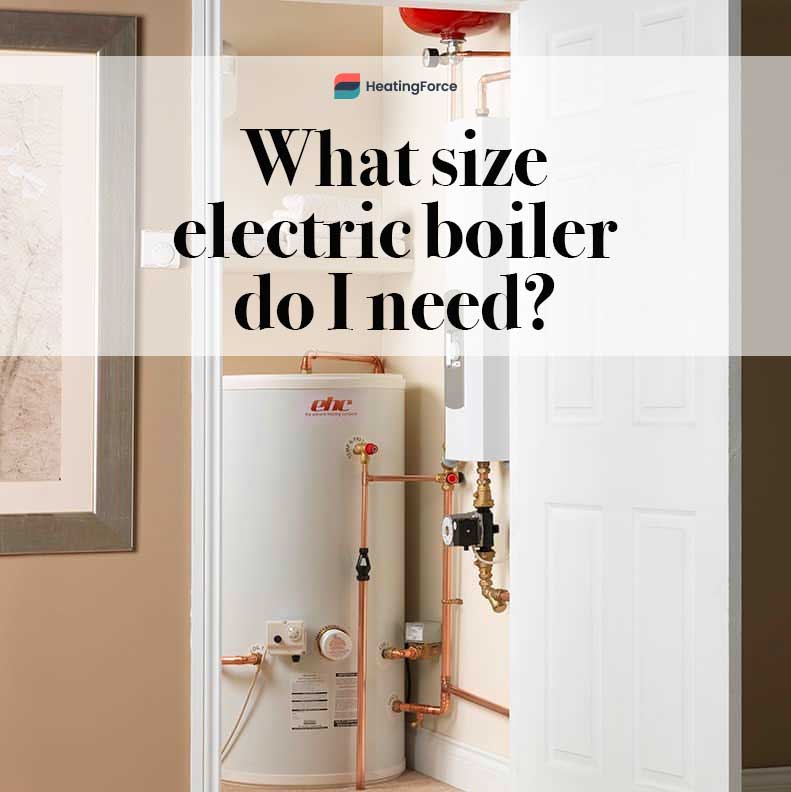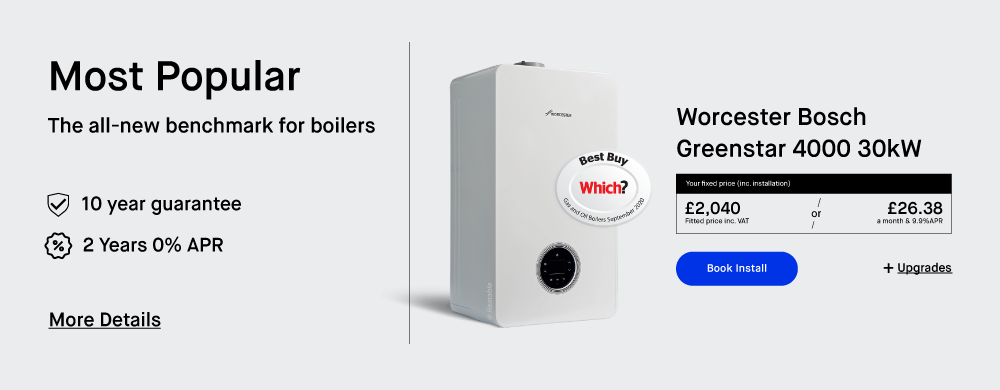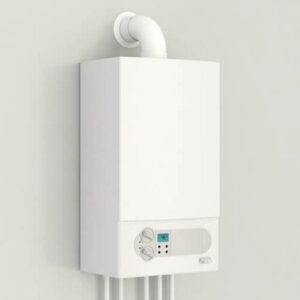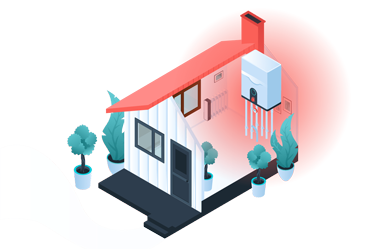What Size Electric Boiler Do I Need?
If you’re considering an electric boiler, you might be wondering “what size electric boiler do I need?”
In this guide, we’ll explain how to choose the right electric boiler kW size for your property, and give you other handy tips.

When you research electric boilers, you will find manufacturers talk about kilowatts. This is an indication of the power output of the boiler rather than the physical size or the amount of power it consumes. Getting the wrong size boiler can impact your boiler’s energy efficiency and have an effect on your energy bills, so it’s vital that you get the electric boiler kW size right.
What Size Electric Boiler Do I Need?
As we noted at the top of this article, the energy output of an electric boiler is measured in kilowatts (kW). The electric boiler kW rating shows how powerful it is, and therefore what demand for central heating and hot water it can cope with.
Generally speaking, electric boilers are not as powerful as gas boilers, and it’s unusual to find one that has a kW output rating much higher than 15kW.
The best way to work out the size of an electric boiler for your property is to assume that you will need 1.5kW for every radiator in your home. So, if your property has eight radiators, you should get an electric boiler with a 12kW output.
How to Size an Electric Boiler
For your convenience, the table below shows you how to size an electric boiler quickly based on the quantity of radiators in your central heating system.
| Radiators | Electric Boiler kW output |
| 4 | 6kW |
| 6 | 9kW |
| 8 | 12kw |
| 10 | 15kw |
If you have more than ten radiators serving your central heating, boilers that run on gas or oil may be a better option.
What If You Install the Wrong-Sized Electric Boiler?
If you opt for an electric boiler that’s too big or too small, you will face problems with energy efficiency and early wear and tear.
An electric boiler that’s too small will struggle to heat your radiators and provide you with sufficient hot water. It will also undergo excessive strain, which can wear out its parts sooner.
On the other hand, if the boiler is too large, it will supply sufficient heat and hot water but will use more electricity than needed, causing your utility bills to go up.
How Energy-Efficient are Electric Boilers?
Electric boilers might cost more to run, but they are also extremely energy-efficient. Most electric boilers have an energy efficiency rate of 99%, which is higher than just about any gas or oil-powered boiler. This means that for every pound you spend to run the boiler, 99 pence get converted to heat and only 1p is lost to inefficiencies.
That said, whilst boiler efficiency is usually rated on a scale from A+++ for the most efficient to G for the least, electric boilers generally get a rating of D. This is because the UK still generates a large chunk of its electricity by burning fossil fuels, so electric boilers still indirectly contribute to the country’s carbon footprint.
Where to Get a Cheap Gas-Powered Boiler
If you do decide to go with a gas boiler, we suggest you get a quote from Heatable. These boiler installers offer some of the best prices available on a huge range of high-quality gas boilers from the best manufacturers, including top Worcester Bosch and Viessmann combi boiler models. All prices include installation by a Gas Safe engineer.

Just head over to the Heatable website and fill in their form — it will only take 90-seconds and you don’t have to give them any personal details. They will offer you a fixed-price quote on the right-sized gas boiler for your property. Keep an eye out for special deals, such as extended warranties, too.
Electric Boiler FAQs
Not sure if an electric boiler is right for you? We’ll help you decide by answering some FAQs about electric boilers.
How do electric boilers work?
An electric boiler works much like a gas or oil boiler, but without burning fossil fuel to heat the water that runs through your radiators (or underfloor heating) and hot water taps.
Instead, the boiler heats water using electricity, a little bit like the electric kettle in your kitchen.
That said, there’s more than one electric boiler type; these boiler systems fall under three general categories:
- Direct: A direct electric boiler heats water on demand, much like gas-fired combi boilers do.
- Storage: This type of electric boiler requires a hot water cylinder or storage tank either within the unit or elsewhere on your property.
- Dry Core Storage: This type is less common and heat bricks overnight. This heat is then used to heat water for central heating systems and domestic hot water during the day. The idea of storage heaters is to save money on fuel costs by using electricity at night when it’s cheaper, if you’ve got an Economy 7 tariff.
What are the advantages and disadvantages of an electric boiler?
There are a number of big pros to choosing an electric boiler system, but sadly also one significant disadvantage. The pros include:
- Safety – An electric boiler doesn’t use gas or oil, so there is no need to store fuels and no risk of carbon monoxide leaks.
- Environmentally-friendly – Using electricity is better for the planet than gas or oil (and will be more so as the country transitions to renewable energy generation methods).
- Installation costs – Electric boilers are typically much cheaper to install than oil or gas boilers.
- Noise – Electric boilers run almost silently, so there’s no clanking or whirring you can sometimes get from a gas boiler.
However, the big disadvantage is an electric boiler’s running costs. Gas and oil are generally much cheaper to use than electricity. Over the lifespan of your boiler, this can make quite a major difference, and is the main reason electric boilers lack popularity.
Should I choose an electric boiler?
 Electric boilers are best suited to smaller properties because they have higher running costs than conventional gas and oil boilers. Also, they’re ideal for smaller homes because the boilers themselves tend to be smaller, so you can easily hide them away into a cupboard or under the stairs.
Electric boilers are best suited to smaller properties because they have higher running costs than conventional gas and oil boilers. Also, they’re ideal for smaller homes because the boilers themselves tend to be smaller, so you can easily hide them away into a cupboard or under the stairs.
Electric boilers are generally not recommended for properties that have more than one bathroom. This is because they often struggle to reach the capacity for hot water needed to service multiple taps and showers.
That said, if you live in a small property that isn’t connected to the mains gas supply, an electric boiler is worth serious consideration.
How to Calculate an Electric Boiler Size: Conclusion
In this guide, we’ve explained how to arrive at the correct electric boiler size. Remember — aim for 1.5kW of output for each radiator in your house.
We’ve also explained how electric boilers compare to gas and oil counterparts, and when it’s practical to get an electric boiler.
Is there anything we missed? Have you ever used an electric boiler, and would like to share your experience? If there’s anything you’d like to ask, or add, please go ahead and leave us a comment below.
